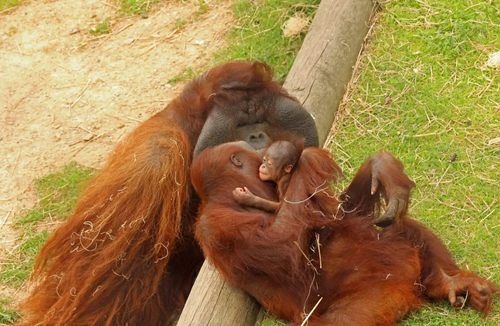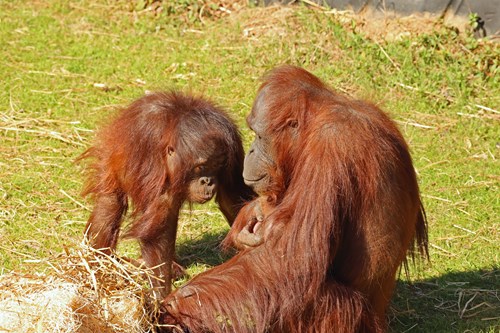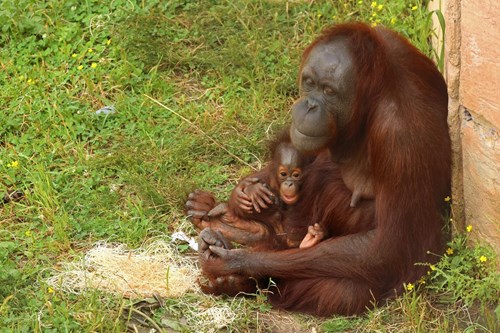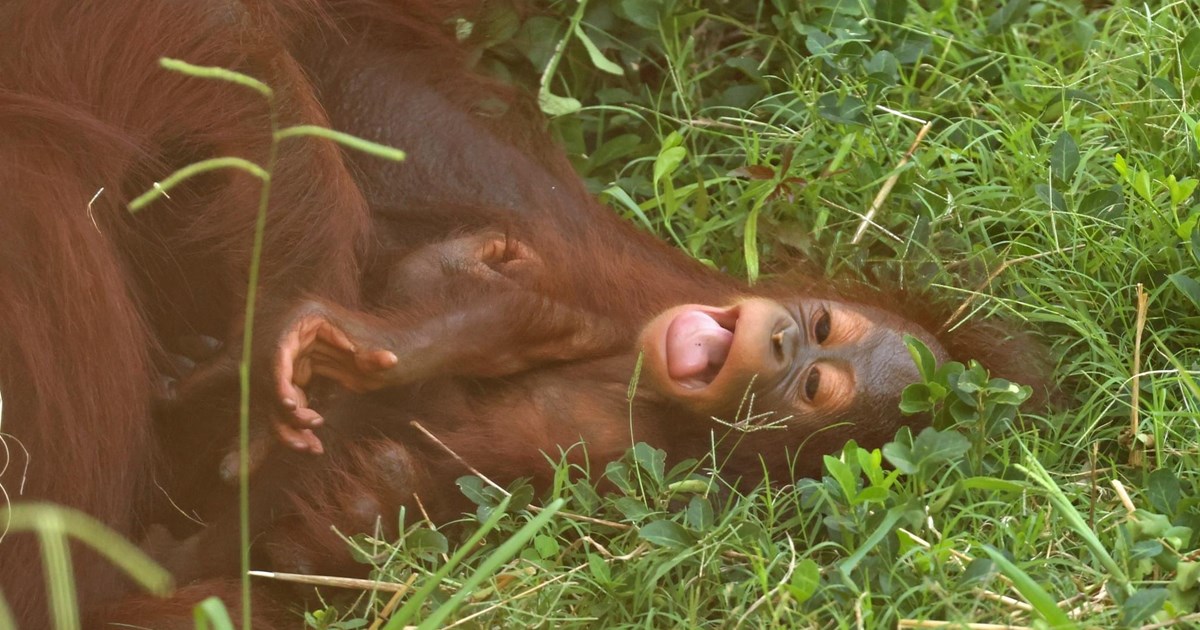LITTLE ROCK (August 1, 2024) – The smallest member of the Little Rock Zoo orangutan family reached a significant milestone this month: Kota is now six months old! Born on February 23, 2024, this baby orangutan is beginning to show signs of growing independence and curiosity, especially when it comes to exploring solid foods that his mother enjoys. Recently, Kota has been observed moving around on the ground near his mother, Berani, and even sleeping on his stomach several feet away from her.
Orangutan infants, like Kota, are born after a gestation period of approximately 8.5 months and typically weigh a little over 3 pounds at birth. During their early years, they rely entirely on their mothers for nourishment and mobility. The bond between an orangutan mother and her baby is exceptionally close, making each developmental milestone a cause for celebration.
This is the second birth for mother Berani at the Little Rock Zoo, having previously given birth to Kasih in 2019. Berani and Bandar, Kota’s father, arrived at the zoo in 2016. Their pairing was recommended by the Orangutan Species Survival Plan® (SSP), a program coordinated by the Association of Zoos and Aquariums (AZA) to help guide the management of orangutan populations in human care in North America. Orangutans have the longest interbirth interval (approximately 6-9 years) and infant dependency of any non-human mammal, which emphasizes the importance of each birth. Females may produce 4-5 offspring throughout their lifetime, underscoring the significance of successful breeding efforts in captivity.

Found in the Malaysian and Indonesian portions of the island of Borneo, Bornean orangutans are the largest arboreal mammals. “Orangutan” means “person of the forest” in the Indonesian and Malaysian languages, highlighting their close connection to their habitat. However, their population is estimated to be between 70,000-100,000 individuals, facing significant threats from habitat loss due to logging and the expansion of oil palm plantations. Over the past 20 years alone, their forest habitat has declined by more than 80 percent.

One important way that people can help orangutans is by choosing products made from sustainably sourced palm oil. Sustainable palm oil production adheres to environmental standards that help preserve orangutans’ forest habitats.
Palm oil produced according to the standards set by the Roundtable on Sustainable Palm Oil (RSPO) or Palm Oil Innovation Group (POIG), as of 2018, is required to be certified as deforestation-free. Manufacturers, retailers and traders all over the world have made bold commitments to removing deforestation from their supply chains.
The rapid expansion of the palm oil industry over the last 30 years has had a catastrophic environmental and social impact across Southeast Asia, South America and Africa. Consumers all over the world have been horrified to learn about the destructive practices rife within the industry.
Boycotting palm oil is a legitimate expression of consumers’ social and environmental concerns, but it is not the only way to a solution. A blanket boycott of oil can lead to more deforestation, a lower demand for palm oil, which leads to lower pricing of palm oil. Moving toward sustainable palm oil can help protect the environment and combat the degradation of natural ecosystems.

The Little Rock Zoo is proud to be among many conservation organizations committed to driving the palm oil industry in the right direction. We invite you to visit Kota and his family on your next trip to the Little Rock Zoo. Watching Kota’s playful antics and experiencing the strong bond between him and his mother, Berani, is an unforgettable experience that underscores the importance of conservation. Join us and be part of Kota’s journey as he continues to grow and thrive!
Photo Credits: Karen Caster
Posted by Misty Waddle on 01 Aug 2024
About the author
Misty Waddle
Misty Waddle is the Guest Services & Marketing Coordinator at the Little Rock Zoo. Edited by Joy Matlock, Zoo Development & Marketing Coordinator.




